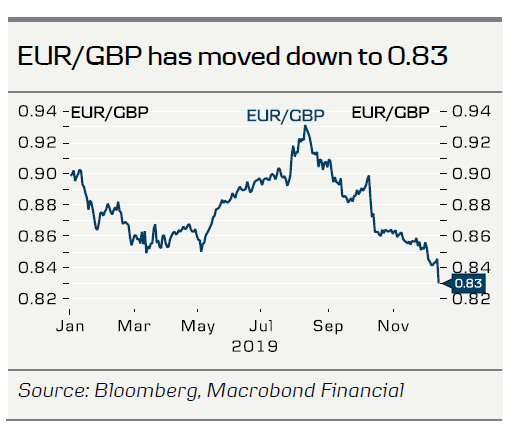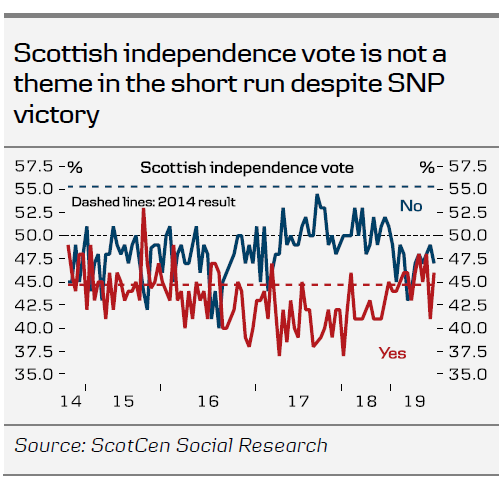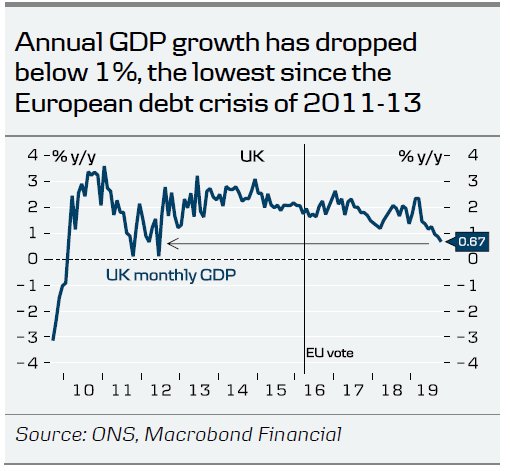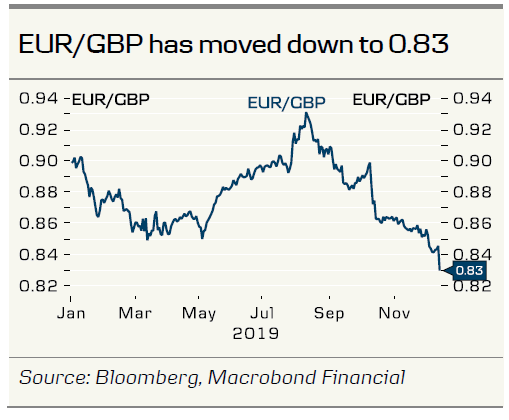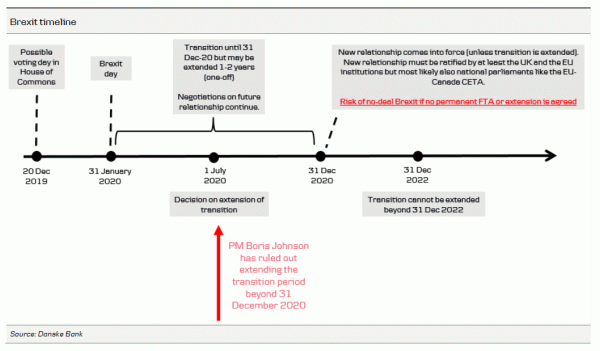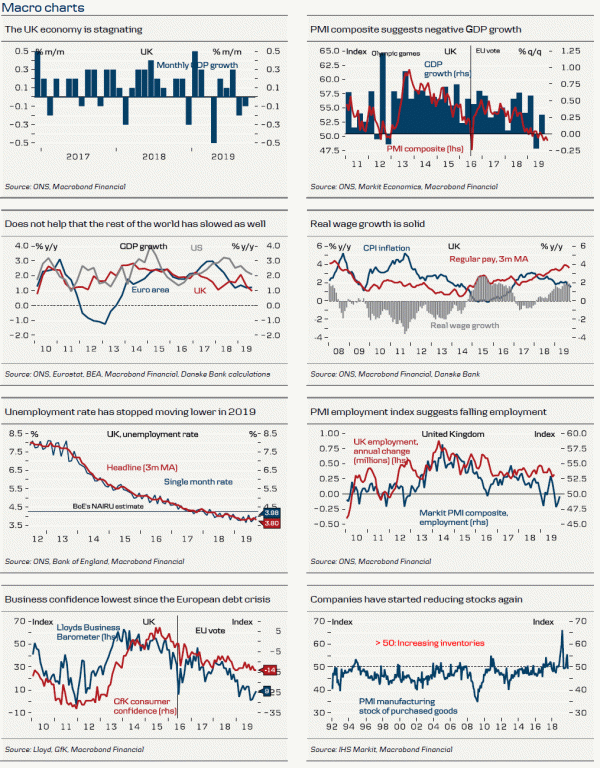Prime Minister Boris Johnson won a big victory at yesterday’s general elections with an estimated 360 seats versus the 326 needed for a majority. The election was a big defeat for both Labour and the LibDems and Jeremy Corbyn has stepped down as party leader and Jo Swinson lost her seat in Scotland.
PM Johnson can now get his Brexit deal through without too many problems, as (1) he will be more powerful with his big victory, as winning elections is what politics is all about, (2) he is no longer relying on votes from the DUP to have a majority and (3) most moderate Conservatives who voted against him have not run for re-election (many were expelled). In other words, the UK is now leaving the EU by 31 January 2020 and nothing can stop it. For a timeline, please see page 3.
The new Members of Parliament will be sworn in on Tuesday, 17 December, and the opening of Parliament (Queen’s speech) is likely to be on Thursday, 19 December. This means that Parliament may vote on the Brexit deal as early as Friday, 20 December.
As we have highlighted several times, it is only the end of the beginning of Brexit. PM Johnson’s deal is only about securing an orderly withdrawal and negotiations on the future relationship are only about to start. The problem is that PM Johnson has pledged not to extend the transition period, which is set to end on 31 December 2020 (according to the withdrawal agreement, the transition period can be extended by 1-2 years and the decision must be taken before 1 July 2020, but the terms must be negotiated in particular on payment to the EU budget). This leaves only 11 months to negotiate the future relationship covering everything from goods, services and financial markets to exchanging data.
One way forward is to agree on a loose/simple free trade agreement, but that would not cover services, which is vital for the UK. There are not many examples of free trade agreements covering services and the EU already has problems with its internal market for services. The more PM Johnson wants out of the negotiations, the more the EU will want in return, to ensure the UK follows the same environmental standards, secures workers’ rights, does not give companies state aid or slash corporate taxes and so forth. The EU has said that quota and tariff free trade requires “level playing field conditions”.
If the two sides cannot agree on a permanent deal and the transition is not extended, there is still a risk of an economic no deal Brexit by 31 December 2020, where the UK and the EU would trade on WTO rules. Investors have welcomed PM Johnson’s victory by sending the GBP higher but the risk is that the GBP falls again if investors become concerned about a looming no deal Brexit in 2020 (see more on FX outlook next page).
What speaks in the other direction is that PM Johnson’s victory is so big that he can do whatever he wants, as he has become more powerful. PM Johnson may be able to get a softer version of Brexit through without relying on votes from the hard Brexiteers. EU sources have also hinted that while the EU now expects the Brexit bill tol pass soon, it is an open question whether it means a harder or softer Brexit in the longer run.
The Scottish National Party (SNP) won nearly all seats in Scotland (an estimated 53 out of 59), which party leader Nicola Sturgeon will use as a platform to require a second Scottish independence referendum, in particular after Brexit. This is not going to happen with the strong Conservative majority but may be something to watch out for in the very long run, i.e. after the next election and not in this election period.
With respect to the economy, the latest GDP estimates show the economy is stagnating (no growth in the last three months) and that annual growth is now below 1% (the lowest since the European debt crisis in 2011-13) versus 2-3% before Brexit was a theme. Private consumption growth is decent but the UK has been in an investment recession for about two years despite the expansion being nearly 10 years old. To us, it is difficult to see an investment boom coming, as the uncertainty about the long-run relationship remains elevated and has not changed with this result. We expect growth to be around 1% with downside risks. One wild card is how expansionary fiscal policy will be in the coming years. The Conservatives have promised to increase spending by 1% of GDP, but it is difficult to see that playing out in practice (we discussed this thoroughly in a recent FX Essentials).
EUR/GBP: Stable at around 0.83 for now, upside risk next year
EUR/GBP is now at 0.83 and well in line with the lower end of our expectation in the event of a Johnson victory. Looking ahead, it is quite clear he will be able to pass the withdrawal agreement in Parliament and, ahead of Q1 20, we need some seriously bad economic news to contemplate any repricing of EUR/GBP towards even 0.84, a level seen just a few months ago.
We continue to see political risk as bogging down the economy and the Bank of England will probably add some fuel over the next year, but as of today, we are looking at Sterling moving sideways or even higher in Q1 or possibly Q2 if business confidence and hard numbers improve.
We expect weakness in H2 as the economy remains subdued, but that is not the key to the price of EUR/GBP today. Bottom line: we expect EUR/GBP will trade around 0.83, and possibly move higher (towards 0.86, say) in H2.
To take EUR/GBP towards 0.80, three things need to happen. First, expansive fiscal policy must be enacted. Second, we need a rebound in soft and hard data and, third, the withdrawal agreement needs to move through Parliament. We continue to hold reservations as to the ease of carrying out a trade deal, but that conversation will likely not affect EUR/GBP until H2 next year

